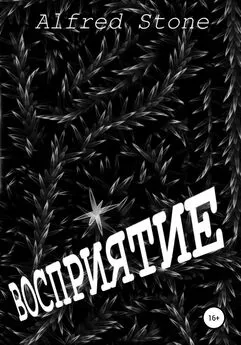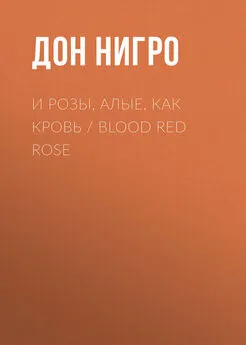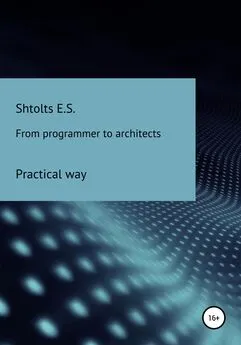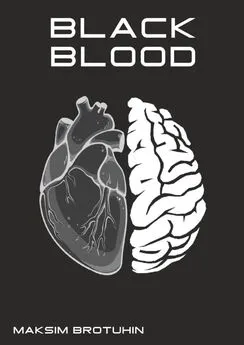Donna Leon - Blood from a stone
- Название:Blood from a stone
- Автор:
- Жанр:
- Издательство:неизвестно
- Год:2005
- ISBN:нет данных
- Рейтинг:
- Избранное:Добавить в избранное
-
Отзывы:
-
Ваша оценка:
Donna Leon - Blood from a stone краткое содержание
Blood from a stone - читать онлайн бесплатно полную версию (весь текст целиком)
Интервал:
Закладка:
Brunetti switched the channel to RAI, but the same old movie was still playing. He tried all of the channels in turn, but there was no report of the incident, not even on the local stations.
He turned the television off. ‘Did your father say where he was calling from?’
Surprised by the question, Paola said, ‘No, he didn’t.’
Brunetti looked at his watch. ‘If I call now and he’s not there, I’ll wake your mother, won’t I?’
‘Yes.’
‘Then it will have to wait,’ he said, picking up his cup. But the drink was cold and he set it down untasted.
Brunetti slept little and was outside by six-thirty, walking in rain he barely noticed towards Sant’ Aponal and the edicola there. He saw the shouting headlines and bought four papers. As he handed Brunetti his change, the news dealer said, with a return to his normal tone, ‘Lousy rain. It’ll never stop.’
Brunetti ignored him and went back home, not bothering to stop to get brioche on the way. In the kitchen, he made himself a pot of coffee and set some milk on to heat. Then he mixed them in a mug and sat in front of the papers, which he had arranged in a neat pile with his glasses folded on top.
Paola came in half an hour later and found him still reading, newspapers open across the entire surface of the table. Though he had read all of the accounts carefully, he still had no idea why his father-in-law had told him to watch the news.
She poured what remained of the coffee into a cup, stirred in sugar, and came to stand behind him. Placing her hand on his shoulder, she asked, ‘And?’
‘And it’s pretty much what they said last night: two men in an apartment near Padova. The Carabinieri received a phone call saying they were members of a terrorist group that was preparing attacks against American interests.’
‘What interests?’ Paola asked.
‘That wasn’t explained. At least not in the papers,’ he said, pushing the one he was reading aside.
‘And then?’ she asked, her coffee forgotten, hand still on his shoulder.
‘And they went. You saw the way they were last night, cars and Jeeps and trucks, and God knows how many of them.’ Brunetti pulled one of the papers towards him and flipped back to the front page, where they could both see a photo of the same apartment, the same stretcher bearers, the same apparently purposeless Carabinieri .
‘The Carabinieri hoped to catch them unawares, the article says,’ Brunetti reported.
Paola bent forward and jabbed a finger at the photo, ‘With half an armoured division at the front door?’ she demanded.
‘The men in the apartment,’ Brunetti began and then bowed his head to hunt for the account. ‘“. . responded with violence, leaving the forces of order no choice but to defend themselves. In the resulting exchange of fire, one policeman was shot in the arm, but the two terrorists were fatally wounded.” ’ He read another paragraph silently and then again out loud. ‘“Among the documents found in the apartment were hand-drawn maps of the American embassy in Rome and what is believed to be the water system of the US base in Vicenza.” ’
Brunetti removed his glasses and tossed them on to the papers. ‘There is a statement from someone who is listed as “a member of the special anti-terrorism unit”, who says that the police responded bravely and well and that it is hoped that an investigation will reveal the full extent of the links between this group and international terrorism.’
Paola moved over to the sink and poured her cold coffee into it. She opened and cleaned the pot, started to fill it with water. ‘More?’ she asked.
‘No,’ Brunetti said. ‘I’ve had too much already.’
When the pot was on the stove, Paola sat down opposite him. Gesturing at the papers on the table, she asked, ‘But why did my father call you? What does it mean?’
Brunetti shrugged. ‘Just about anything, I suppose. It could mean that it is exactly what they say it is, a terrorist cell. But it could mean other things.’
‘You’ve had coffee, so you tell me what the possibilities are. My political imagination isn’t awake yet.’
‘The first thing that is strange is that they don’t give the nationality of the suspects, nor do they give their names. Nor do they give any idea of what larger terrorist group they’re linked to.’
‘The Americans said Islamic fundamentalists.’
‘The Americans say that if someone double parks,’ Brunetti answered angrily. Then, in a cooler voice, he went on, ‘Your father called me and told me to watch this, but the original call came from a friend of his. But your father wouldn’t call unless it were related to the black man’s death. But I have no idea how.’
The coffee bubbled up, and Paola went to take it off the stove. ‘Then go to work and see what they tell you there.’
At the Questura, where he arrived a little after eight, things seemed as quiet and restrained as they generally did at that hour. He went up to his office, but since he had already read the newspapers, he had no choice but to read through the documents and files that had been accumulating on his desk for more than a month. He found himself thinking that, if the people from the Ministry of the Interior had seen fit to answer his phone for him while they were there, the least they could have done was read and process all of these papers.
He kept at it doggedly until about eleven, when his phone rang. He answered on the sixth ring, reluctant to be taken from the mindless rhythm of his paperwork. ‘Yes?’ he answered gruffly.
‘Good morning, Commissario,’ Signorina Elettra said.
‘Sorry,’ he said automatically. ‘I’ve had too much coffee.’
‘Apparently so has the Vice-Questore.’
‘Excuse me?’
‘He’s quite ebullient, if that’s the proper word to describe his behaviour. And he wants to see you.’
‘I’ll come down,’ Brunetti said, entranced by the idea of what form an ebullient Patta would take.
It took the form, he saw when he entered Patta’s office a few minutes later, of a broad smile in which Brunetti noticed a considerable proportion of self-satisfaction. ‘Ah, Brunetti,’ Patta fairly chirped when he saw him. ‘I’m glad you came down. There are a number of things I want to tell you.’
‘Yes, sir?’ Brunetti asked, coming forward.
‘Sit down, sit down,’ Patta said, pointing Brunetti to a chair just in front of him.
Brunetti took his place but said nothing.
‘I know we’re all busy, so I won’t take up too much of your time,’ Patta began, which told Brunetti that he must have plans for an early lunch or for one out of town.
‘Yes, sir?’
‘It’s about this black man who was killed,’ he began, but then, slipping a note of camaraderie into his voice, ‘or, if I must say it, about your refusal to trust me when I said it was being handled by higher authorities.’ Brunetti asked for no explanation, so Patta continued. ‘I told you they knew what was going on with these men.’
When he saw Brunetti react to that last word, Patta said, ‘Yes. Men. There were a number of them, and the man who was killed was a member of their group.’
Here Brunetti interrupted the flow to ask, ‘Are you speaking about the incident in Vigonza last night, sir?’
‘Yes, I am. I’ve spent the morning with my counterpart’ — ah, how Patta loved the rhetoric — ‘at the Ministry of the Interior. He came here to share with me their intelligence on the men who were killed in that gun battle last night.’
‘And that was?’ Brunetti inquired.
‘The news reports have it right, at least in essence. They were members of a terrorist organization: there’s no question of that. But they aren’t certain yet which larger group they were linked to.’
‘No doubt they’ll discover that,’ said a diffident Brunetti.
Missing his tone, Patta smiled at his words. ‘Of course they will. I’m glad you can see it that way.’
‘And the phone call?’ Brunetti prodded.
‘An anonymous call, apparently made from a public phone. It told the police where to go.’
‘The police? I thought I saw pictures in the paper of Carabinieri vehicles.’ He remembered, but did not mention, the unmarked cars.
‘It was a mixed operation,’ Patta answered smoothly.
Brunetti thought of the men in ski masks but said only, ‘I see.’
‘They wanted to get into the apartment before the men realized they were there. But they must have been on guard, or perhaps they heard them.’
‘Or saw them from the window?’ Brunetti suggested.
‘I don’t know about that,’ Patta said with the first signs of irritation. ‘But what I do know is that, when the men went in, the terrorists opened fire. There was no choice but to fire back, and in the confusion, both of them were killed. Luckily, only one of us was hit, and not badly.’
Brunetti resisted the impulse to give voice to an exclamation of prayerful thanksgiving.
‘When it was over, they searched the place and found weapons and documents. False passports, an arsenal.’ When Brunetti did not comment or question, Patta added, ‘One of the guns they used is the same calibre as the one that killed the man in Campo Santo Stefano. The first hypothesis is that there was some sort of falling out between them, and they decided to eliminate him,’ Patta concluded. The statements describing the killers as white were among those things disappeared from Signorina Elettra’s computer, and he had never bothered to get the addresses of the American witnesses. Patta pointed at a folder that lay on the desk between them and said, ‘My counterpart brought me copies of the police photos.’
‘Will they be in the papers?’ Brunetti asked.
‘Perhaps, in days to come,’ Patta answered, then added, ‘but perhaps some of them are too graphic to be given to the press.’ He opened the folder and turned the photos around, then pushed them across the desk to Brunetti.
Brunetti knew he would recognize them even before he saw them, so he gave no indication of surprise when the first photo revealed a close-up of two of the black men he had spoken to in the apartment in Castello. The gentle eyes of the older one were open in death, gentle no longer. Nor was he unprepared to see the profile of the very thin young man, who succeeded in looking just as angry in death as he had in life. It was the later photos, taken from farther away so as to give a full view of the room, that did succeed in surprising Brunetti. The older man lay on his back, a machine-gun across his chest, one hand gripped around the stock. The younger man lay on his left side, his right arm thrust out, fingers wrapped around the butt of a pistol.
‘I see,’ Brunetti said, sliding the photos back across the desk.
‘I hope the sight of these will be enough to convince you that they knew what they were doing, the men from the Ministry of the Interior.’
‘There’s no doubt of that,’ Brunetti said, getting to his feet.
27
As he walked up the stairs to his office, Brunetti realized the low humming sound he heard was one he was making himself. He forced himself to stop, hoping that the pressure he felt as a physical force in his head and chest would ebb away if he did. It seemed to help, and by the time he was back in his office, his rage had diminished sufficiently to allow thought.
The set-up was easily understood: arrive with enough firepower, blow the men away, and then provide an explanation likely to be believed. What more fashionable than terrorism these days? It was entirely likely that the Carabinieri who were called in had no idea of what was really going on, were there like extras in a production of Aida , useful to cross the stage once or twice to provide verisimilitude in what might otherwise be revealed as a shabby, ill-rehearsed spectacle.
Читать дальшеИнтервал:
Закладка:
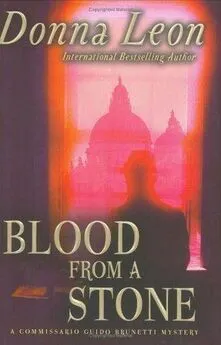
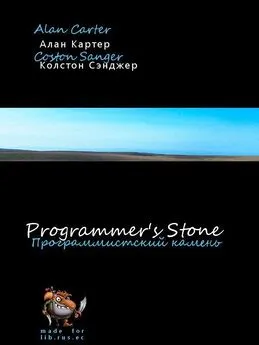
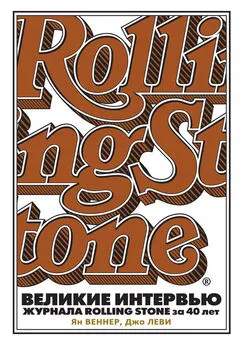
![О Генри - С высоты козел [From the Cabby's Seat]](/books/1083418/o-genri-s-vysoty-kozel-from-the-cabby-s-seat.webp)
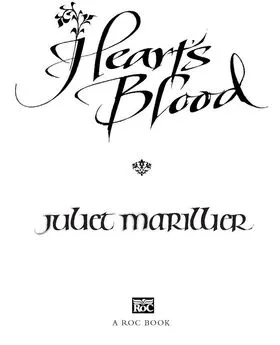
![Инна Владимирова - Blood diamond [litres самиздат]](/books/1149324/inna-vladimirova-blood-diamond-litres-samizdat.webp)
